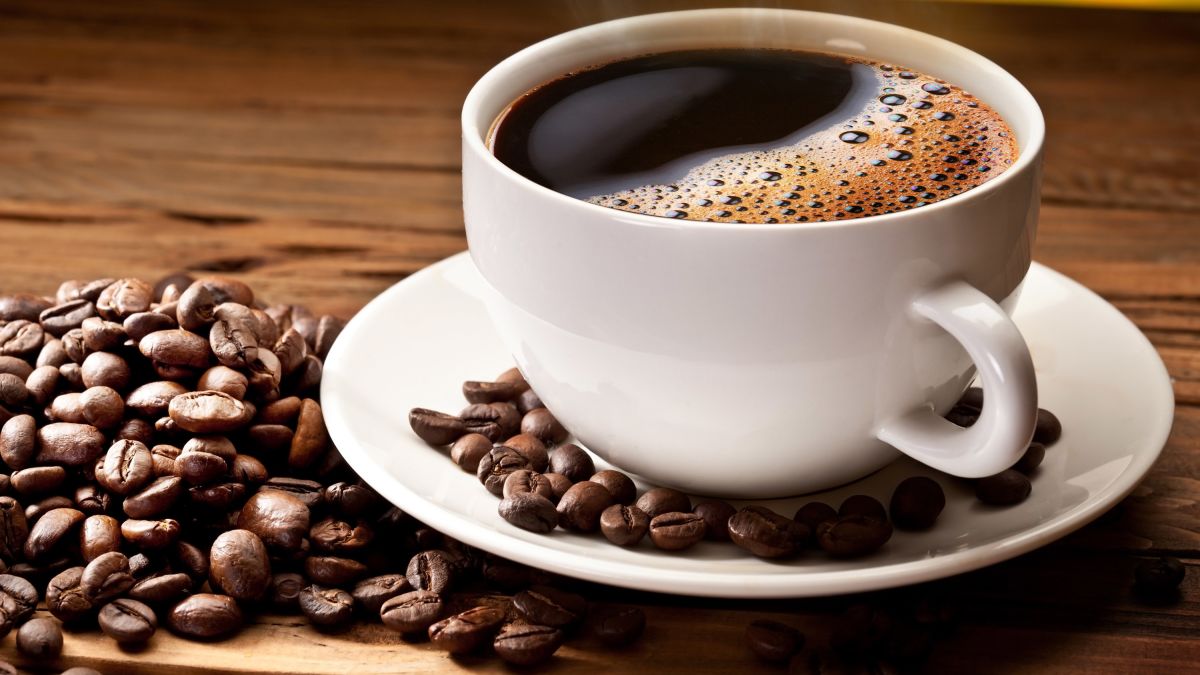

· By Joe Farafontoff
The Best Coffee Substitutes for Individuals Who Can't Handle Caffeine
Caffeine is a well-known stimulant that influences the central nervous system. Caffeine is naturally produced in plants that grow cocoa beans, coffee beans, tea leaves, and other substances.
Caffeine sensitivity is presented in varying degrees. One person can consume a triple-shot espresso without causing jitters. Others fall asleep hours after drinking a small serving of cola. Caffeine sensitivity can also change daily due to a variety of changing factors.
While there is no specific test for caffeine sensitivity, most people fall into one of three categories:
Normal Sensitivity
Caffeine sensitivity is common in most people. People in this age range can consume up to 400 milligrams of caffeine daily without experiencing any adverse side effects.
Hyposensitivity
According to studies, approximately 10% of the population carries a gene associated with increased caffeine consumption. They can consume large amounts of caffeine late in the day without experiencing side effects such as prolonged wakefulness.
Hypersensitivity
Caffeine-hypersensitive individuals cannot tolerate small amounts without experiencing adverse side effects.
However, this is not the same as a caffeine allergy. Caffeine sensitivity is caused by several factors, including genetics and your liver's ability to metabolize caffeine. Caffeine allergies occur when your immune system misidentifies caffeine as a dangerous invader and attempts to fight it with antibodies.
Symptoms of Caffeine Sensitivity:
Caffeine sensitivity causes an intense adrenaline rush in those who consume it. After only a few sips of regular coffee, they may feel like they've consumed five or six cups of espresso. Caffeine-sensitive people metabolize caffeine more slowly, so their symptoms may last several hours. Symptoms could include:
- Racing heartbeat
- Jitters
- Headache
- Restlessness
- Insomnia
- Nervousness
These symptoms are distinct from those associated with a caffeine allergy. Caffeine allergies can be:
- Itchy skin
- Hives
- Swelling of the tongue or throat
What Are the Recommended Caffeine Doses?
Individuals with normal caffeine sensitivity can typically consume 200 to 400 milligrams daily without adverse effects. This equates to two to four 5-ounce cups of coffee; people should not consume more than 600 milligrams daily. There are no current caffeine intake recommendations for children or adolescents.
Highly caffeine-sensitive individuals should reduce or eliminate their caffeine intake. Some people find it most comfortable to avoid caffeine entirely. Others may tolerate a low dose of 30 to 50 milligrams per day.
A 5-ounce cup of green tea contains approximately 30 milligrams of caffeine. A typical cup of decaffeinated coffee contains 2 milligrams.
Top Coffee Substitutes:
For individuals with caffeine sensitivity of any of the levels mentioned above, the following substitutes are recommended:
Shroof
The healthiest alternative, this magic blend is composed of organic ingredients that will fulfill your coffee cravings without giving you the jitters.
Designed for a healthier mind and body, Shroof provides the following benefits:
- Improved gut health
- Immunity boost
- All-day energy
- Total focus
Moreover, Shroof only contains 1/5th of the caffeine in a regular cup of coffee.
Homemade Hot Cocoa
Many individuals consider hot cocoa a nighttime drink that aids relaxation and sleep, but it can also be used as a coffee substitute.
One mug of warm cocoa in the morning will give your body powerful antioxidants and may even improve your mood (although more research is needed on this). Since cocoa contains a lot of magnesium, a nutrient that promotes muscle relaxation, this beverage can also help with digestive system function.
Masala Chai
Masala chai is an intensely flavored black tea typically consumed with hot milk. It contains a variety of spices, such as cardamom, cinnamon, ginger, and cloves. It contains small amounts of caffeine, just like any other black tea, but unlike coffee, it does not cause anxiety. Masala tea is also known to help with nausea, weight loss, improved heart health and digestion.
Barley Coffee
If you're avoiding coffee, try drinking coffee made from orzo or barley. These are caffeine-free coffee substitutes made from roasting and grinding barley grains. Barley coffee tastes slightly earthy and bitter, but it's a great drink to try if you want to alternate coffee with another beverage or don't want to quit coffee cold turkey. Barley is high in vitamin B and E and minerals like potassium, magnesium, and phosphorus. Although barley coffee is unlikely to provide a significant energy boost, its potassium content can assist in restoring electrolyte levels in the body.
Seed and Nut Milk
Seed and nut milk is a nutrient-dense beverage that will get your day started right. This drink will help to keep your blood sugar stable, reduce inflammation, and support normal nervous system function. This milk, made from almonds, poppy, and pumpkin seeds, is high in iron, magnesium, calcium, protein, and fiber.
Roasted Fig Coffee
Fig coffee is an excellent alternative to regular coffee for health-conscious individuals. This alkaline drink is high in minerals such as iron and potassium and vitamins A and E. Caffeine, gluten, dairy, and processed sugar-free make it a great addition to any diet.
Smoothies
Smoothies contain healthy fruits and vegetables that can naturally boost your energy levels, making them excellent alternatives to coffee for energy. Smoothies also help you meet your daily fruit and vegetable serving requirements. This is a significant benefit because many people do not consume enough fruits and vegetables.
You can add protein to the mix to make your smoothie more filling. Smoothies are a nutritious and convenient breakfast option that can provide you with essential vitamins and minerals, fiber, protein, antioxidants, and carbohydrates.
Takeaway:
Excessive caffeine consumption can have many adverse side effects. Finding healthy substitutes for caffeine-rich beverages like coffee is the best way to avoid these effects and start your day right.
